On January 28, 1753, a large party of Native Americans consisting of 70 Christian Conewagos and Ottawas, one French Canadian, and a renegade Dutchman named Phillips came down the Warrior’s Path from the vicinity of the St. Lawrence River on a scalp-hunting expedition against southern tribes.
On January 28, 1788, Elijah Craig opened the 1st classical school in Kentucky. The school taught Latin, Greek courses, and “such branches of the sciences as are usually taught in public seminaries.” Ten years later, the Rittenhouse Academy took over and was given some 5,900 acres in Christian and Cumberland counties to sell the land to benefit their endowment fund. The academy eventually became Georgetown College in 1829.
January 28, 1794, officials recorded James Harrod’s will. Mr. Harrod died mysteriously during one of his hunting trips in the winter of 1792; they never found his body. Because of his prominence in the state, his death intrigued the public. The story captivated the young Commonwealth. Unfortunately, the only documentation on the disappearance was Mrs. Harrod’s testimony about her Revolutionary War wife’s pension, which she never received. Ann believed he was murdered by “Bridges.” James was an important witness against “Bridges” in a pending lawsuit.
Kentucky Trivia: James Harrod divided his plantation between his wife and daughter. The daughter’s 2nd inheritance from her half-brother increased her acreage to 2,800, and when Margaret married in 1802, she was one of Central Kentucky’s richest heiresses.
On January 28, 1815, Lebanon incorporated as a city. It eventually became the county seat of Marion County in 1835. Because of its style, architecture, and businesses, the city developed a reputation of being Kentucky’s Philadelphia and, at one point, officials considered the town for the state capital.
Kentucky Created Three Counties on January 28, 1819.

January 28, 1819, Kentucky created Harlan County from Knox County and named it in honor of Silas Harlan, Army Major in the Battle of Blue Licks. The county seat is Harlan. Other cities and towns include Benham, Cumberland, Evarts, Loyall, Lynch, Ages, Cawood, Coldiron, Kenvir, Pathfork, South Wallins, Wallins Creek, Baxter, Bledsoe, Brookside, Closplint, Cranks, Dayhoit, Elcomb, Fresh Meadows, Grays Knob, Gulston, Highsplint, Holmes Mill, Putney, Pine Mountain, Rosspoint, Smith, Tacky Town, Teetersville, Totz, and Verda. The 60th county created, Harlan County covers 468 square miles.
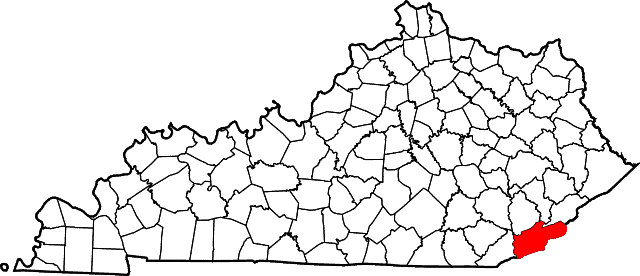 By David Benbennick
By David BenbennickJanuary 28, 1819, Kentucky created Hart County from Hardin County and Barren County. Hart was named in honor of Nathaniel G. S. Hart, army major and lawyer captured at the Battle of Frenchtown. The county seat is Munfordville. Other cities and towns include: Bonnieville, Horse Cave, Hardyville, Canmer, Cub Run, Hammonville, Legrande, Linwood, Monroe, Priceville, Rowletts, and Uno. The 61st county created, Hart County covers 418 square miles.
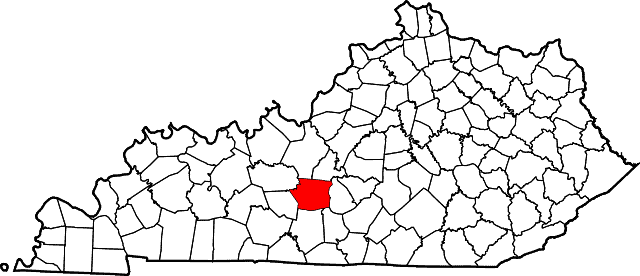 By David Benbennick
By David BenbennickJanuary 28, 1819, Kentucky created Simpson County from Allen County, Logan County, and Warren County and named it in honor of John Simpson, a military captain killed at the Battle of Frenchtown. The county seat is Franklin. Other cities and towns include Gold City, Middleton, Neosheo, Prices Mill, Providence, Rapids, and Salmons. The 62nd county created, Simpson County covers 236 square miles.
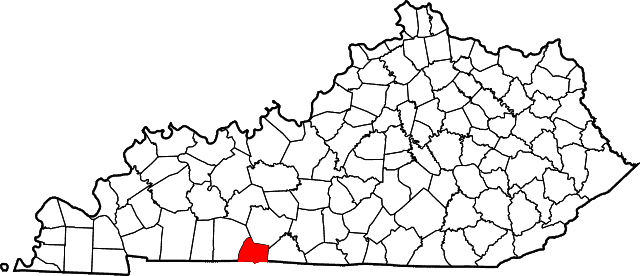 By David Benbennick
By David BenbennickJanuary 28, 1854, Kentucky created McLean County from Muhlenberg County, Daviess County, and Ohio County and named it in honor of Alney McLean, U.S. Representative from Kentucky. The county seat is Calhoun. Other localities include Island, Livermore, Sacramento, Beech Grove, Buel, Cleopatra, Comer, Congleton, Elba, Glenville, Guffie, Lemon, Livia, (partially) Nuckols, Poverty, Rangers Landing, Tichenor, Wrightsburg, Wyman, Buttonsberry, Poplar Grove, Rumsey, Semiway, Station, and Underwood. The 103rd county created, McLean County covers 256 square miles.
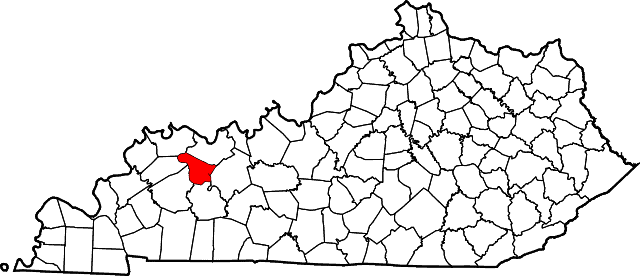 By David Benbennick
By David BenbennickJanuary 28, 1916, President Woodrow Wilson nominated Louis D. Brandeis, from Louisville to the U.S. Supreme Court.
Localtonians wish a Happy Birthday to Seco native Tom Gish, born in 1926 in Letcher County. Mr. Gish owned the Mountain Eagle Weekly newspaper as a reporter and editor. He worked alongside his wife, Pat Gish, in Whitesburg. It was the 1st paper in Eastern Kentucky to challenge strip mining.
January 28, 1951, Army PVT Raymond Cecil from Nelson County and Army CPL Charles C. Flener from Bullitt County both died in the Korean War.
Localtonians wish a Happy Birthday to Emporia native David Green, born in 1958 in Daviess County.
January 28, 1966, Army PFC Ewing C. Babbage from Hopkinsville in Christian County died in the Vietnam War.
January 28, 1969, Louisville hosted the 2nd American Basketball Association (ABA) All-Star Game in the Louisville Convention Center before an audience of 5,407. The Western Conference defeated the Eastern Conference, 133–127.
On January 28, 1974, Muhammad Ali (44-2) fought Joe Frazier (30-1) in Madison Square Garden. Promoters spiced things up with a wrestling match during a pre-fight interview with Howard Cosell. Frazier attacked his opponent after Ali called him ignorant, and both received $5,000 fines. Ali dominated the less-than-thrilling rematch and outpunched Frazier, winning a decision.
Localtonians wish a Happy Birthday to Covington native Nate Jones, born in 1986. The relief pitcher is known for his career with the Chicago White Sox. He finished his 2012 rookie season with a record of 8-0 and a 2.39 ERA.
January 28, 1988, Luska J. Twyman, the 1st black mayor of a Kentucky city, passed away. He became mayor of Glasgow in 1968.
January 28, 1994, the Russell Lodge, No. 284, also known as the Jamestown Masonic Lodge received admission on the U.S. National Register of Historic Places.
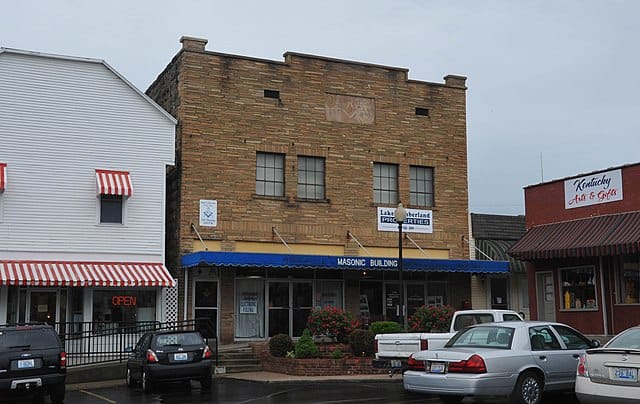 By Jerry & Roy klotz MD
By Jerry & Roy klotz MDJanuary 28, 2006, Jerry Bailey rode his farewell mount in a $500,000 stakes at Gulfstream Park aboard Silver Tree – fittingly for Mott. The duo won 16 races in a row with Cigar.
On January 28, 2017, Gulfstream Park ran the inaugural $12 Million Pegasus World Cup Invitational, the world’s richest thoroughbred horse race, the brainchild of the track’s owner Frank Stronach. The Grade I rating came from the Donn Handicap. A Kentucky-bred and Keeneland graduate took the top prize. Over half of the entries came from the Keeneland sales ring.
January 28, 2020, at top secret intelligence briefing, a senior official informed President Trump that the coronavirus would be “biggest national security threat” of his presidency, while China told their citizens not to travel.

